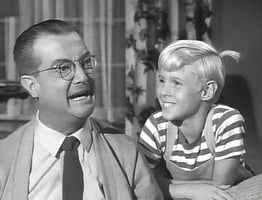Daily frustration is not fun. Poor Mr. Wilson. In the comics, young Dennis would frustrate Mr....
The Choice is Yours
Dave Nelson walks into his newsroom each day hoping that today will be the day his team works well and collaboratively. He is optimistic that they will finally heed his charge to perform their jobs excellently, support one another appropriately and follow policy compliantly. And each day, Dave is disappointed. Whether it’s Joe, Beth, Matthew or Catherine, each takes shots at such expectations. And Bill McNeal may be the worst one of all.
While most of us won’t deal with those in such blatant disregard to our lead, we often find ourselves frustrated with a team that won’t “fall into line.” We have this unrealistic notion that people will do as we ask, or worse do as they should. Well, what should they do? Be? We’ve created the teams to function or to not function. We’ve delineated roles with duties, itemized performance and categorized priorities. Where are things falling apart?
Let’s come back to that expectation. First, is it the right one to have? So much recruitment effort goes into finding the “right” person. We want someone who is a creative, skilled, cultural fit. We want someone who can bring new ideas and a fresh approach, but who does so in a comfortable way. We ask for independence and critical thinking, but also, need for them to follow our preferences. That would be difficult for anyone to live day in and day out.
Often, the small points of employee performance become amplified because the expectations aren’t being met. We may not have done a great job of explaining those expectations, but we hold people accountable to those ideals, even if in conflict with one another. It’s our job to sit and to understand what this role should be about. Consider the tasks, the performance, the outcomes. What should those things look like? How would someone know that? And if you say, “job description”, then be prepared to actually read it to confirm. The static description might not speak to the dynamic punch you’re really looking for.
The greatest level of difficulty comes when these expectations remain unspoken. Managers will say things like, “They just should know how to do their job.” Well, if you’re saying that, it’s because they aren’t. And if they aren’t, it’s because some resource or explanation is missing. And if that’s missing, it’s because you haven’t offered it. You can fix it. Don’t look at the people with disdain, but rather look at the situation and process. We assign labels to people too quickly and it digs a deeper hole for them to climb out of. It’s unfair and demands more effort than someone should be expected to give.
Unspoken expectations and broken performance align regularly. It is a treatable situation. Usually, a trip back to the beginning of a person’s hiring helps. What was it about this person that made him/her our choice? Are those qualities being displayed now? Why not? From there, you can dissect the work to see if it meets the expectations of the role. Is there more happening in one area than another? Is that a surprise? Have resources been allocated to help?
When you begin to ask questions like this, you demonstrate to employees the right kind of interaction and critical thought you desire from them. They may not have seen this kind of response happening to date. They are likely ready to respond similarly. Shockingly, they may begin to demonstrate the kind of communication and engagement you’ve been wanting to see after you walk through this. You will have set the tone.
Now, when you walk into work each morning, you can have a healthy view of what the day will bring. Critical thinking rather than blind conformity. Cultural advancement rather than individual protection. It will be an environment where employees truly know what’s expected of them, and they are then happy to participate in the success of work. So different than the News Radio station of Dave Nelson.




Blog comments